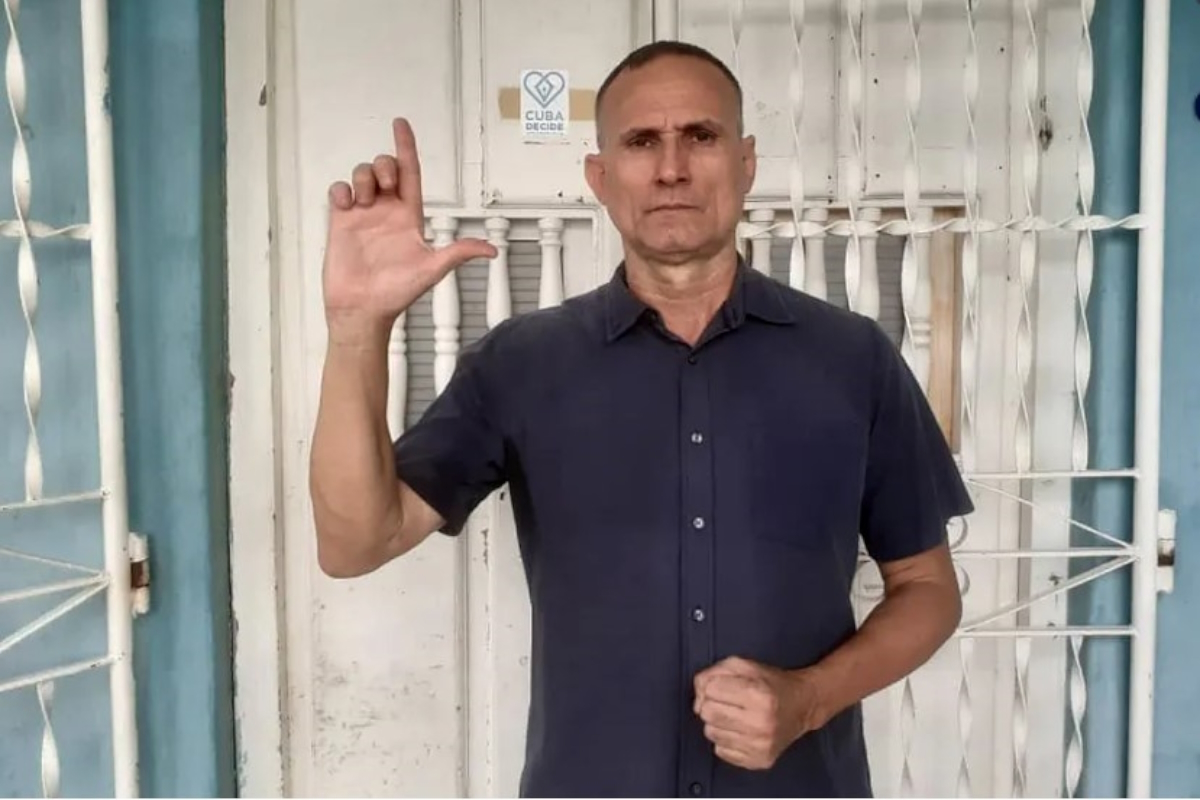José Daniel Ferrer, the emblematic leader of Cuban dissent, remains steadfast in his mission to achieve freedom and democracy for Cuba. After three and a half years in prison, he has been released—almost forcibly—under agreements between the Cuban regime and the Vatican, coinciding with a minor thaw promoted by the outgoing U.S. administration.
EL MUNDO spoke with the unyielding Ferrer, who refused to sign conditional release papers, asserting his innocence of the charges against him.
Arrested during the popular uprising of July 11, 2021, Ferrer shared with this newspaper the harrowing details of two brutal beatings he endured in prison, as well as other physical and psychological abuses.
"If the regime hasn't eliminated me like they did Oswaldo Payá, it's thanks to supportive European Parliament members and the free press of the democratic world," Ferrer said. Often compared to Russian opposition leader Alexei Navalny, who was killed in custody, Ferrer remains a key figure in Cuba's fight for democracy.
"On a humanitarian level, I'm glad—though not for myself—that political prisoners are being freed from such dire conditions. However, I demand the release of all prisoners. At the same time, I feel ashamed of this agreement and the way the Biden administration and the Vatican have handled it. Based on the regime's official statement, it seems as if they were defeated in three rounds and decided to 'generously' free the 553 prisoners. If Biden and the Vatican don't refute this narrative, they are playing along with a bully akin to Pablo Escobar, who acts as he pleases, allied with Nicolás Maduro and Vladimir Putin. The regime boasts that both Washington and the Pope have fulfilled its will. They've been disrespected," Ferrer emphasized.
The leader of the Patriotic Union and a prominent member of the Council for Democratic Transition in Cuba revealed that he rejected exile offers the government proposed for months to get rid of him. He remains committed to the struggle "until freedom, democracy, and human rights are restored, and our people no longer suffer the misery and poverty of a regime that has lasted more than six decades."
A Life of Resistance
"This fight continues. Thirty years ago, I read in a magazine banned in Cuba that Nikita Khrushchev once told an international journalist, 'We Soviets are never to be trusted,'" Ferrer joked, adding that even mid-ranking military officers endure the same scarcity and hardships as ordinary Cubans.
This marks Ferrer's third time in prison, amounting to a total of 12 years. He was one of Fidel Castro's most targeted dissidents, first imprisoned in 2003 along with 74 other activists during the so-called Black Spring. Initially sentenced to death, Ferrer, the leader of Cuba's most popular opposition movement, served eight years in prison before being released.
Since 2018, Ferrer has faced repeated arrests, hunger strikes, and protests. From July 2021, he was held in Mar Verde prison in Santiago de Cuba. Despite the mistreatment and emotional strain, he joked with EL MUNDO about one of the "tortures" he endured for months: government-controlled television.
Refusing Conditional Release
He first learned of his release at 10:30 a.m. on Thursday when a senior intelligence officer informed him that a team of judges and 10 military officials wanted to outline the conditions of his conditional release. "I refused to accept them. I've spent 12 years in the harshest isolation, suffering hunger, beatings, and infections. I wasn't going to obey their new orders," Ferrer said.
The ensuing scene could have been scripted by Cuban filmmakers Tomás Gutiérrez Alea and Juan Carlos Tabío, matching the biting satire of Guantanamera.
"I told them, 'I don't accept these conditions. Sentence me to another 30 years if you must. That's how tyranny works. Save me time and leave me in this concentration camp.'" Ferrer recounted how the military tribunal struggled to articulate their so-called "constitutional democracy."
A colonel eventually escorted him to the prison gate, where his wife, Nelva Ortega, and children had been waiting. "I wanted to go back, but they wouldn't allow it. They threw me out of prison!" Ferrer concluded.
Allegations of Abuse and Torture
Ferrer's accounts of abuse and mistreatment have been documented by human rights organizations. "I'm certain I was drugged through my food. I suffered intense headaches, hallucinations, and felt as though the walls of my cell were closing in on me. The ear pain was unbearable, like crickets orchestrating a cacophony—not a Beethoven symphony, mind you. Even military personnel experienced similar symptoms, akin to the so-called sonic attacks on U.S. diplomats. International advocacy ended this ordeal for me, and I'm deeply grateful to the European Parliament and the free press," Ferrer explained.
He also expressed solidarity with the Venezuelan people in their fight for freedom.
"I've sacrificed my life and my family, whom I love deeply, to fight for my people. I will never abandon this struggle," Ferrer concluded.
